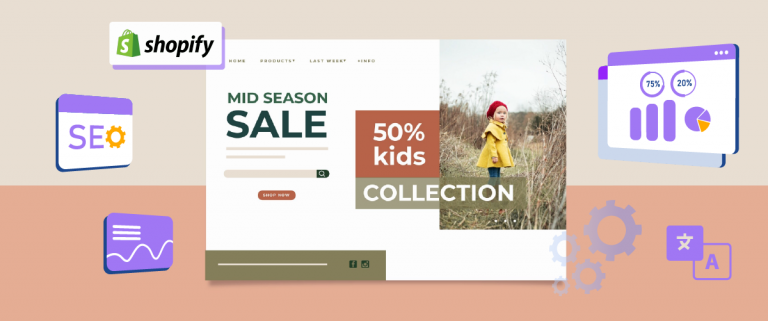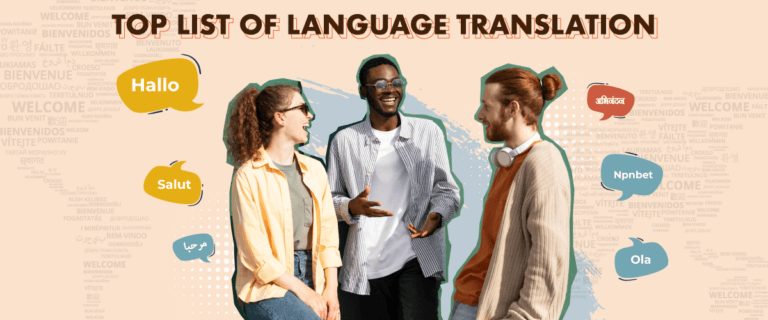When you have a website hosted on Hostinger, reaching a global audience means going beyond just providing content in multiple languages. Multilingual SEO is essential to stand out in search engines across different countries. It ensures that your website isn’t just translated but optimized for each language version, helping your content rank higher and attract more visitors worldwide.
Hostinger makes it easy to manage multilingual sites with its wide range of features designed to streamline the process. In this article, we’ll cover practical tips to optimize your Hostinger-hosted website for multilingual SEO so you can improve your search rankings and user experience globally.
The importance of multilingual SEO for your Hostinger website

Optimizing multilingual SEO for sites hosted on Hostinger is essential to ensure that each language version of your site is translated and well-optimized in search engines. With proper SEO, your site can reach a wider global audience, allowing visitors from different countries to find content relevant to their language. This not only increases the number of visitors but also strengthens relationships with a more diverse audience, which in turn increases engagement.
In addition, multilingual SEO helps improve a site’s ranking on search engines. By implementing it, you tell the search engine to display the right language version according to the user’s location, which helps increase visibility in local search results. This ensures that your site remains competitive and is easily found by international users.
Last but not least, multilingual SEO optimization improves the overall user experience. When users can access a site in the language they speak, they spend more time on the site and explore more content.
How does Hostinger support multilingual websites?

Hostinger offers a wide range of features that support multilingual websites’ easy creation and management. Here are some of the ways Hostinger can help optimize your multilingual site:
- Fast and stable web hosting: Hostinger provides high-performance hosting and speeds that can support multilingual sites, ensuring optimal user experience in different regions.
- Global speed optimization with CDN: Hostinger offers a Content Delivery Network (CDN) that can speed up your site access in different parts of the world. This is especially useful for multilingual sites that cater to an international audience.
- Support for multilingual plugins: Hostinger is compatible with various popular multilingual plugins such as Linguise, TranslatePress, Weglot, WPML, etc.
- International domain management: Hostinger supports using domains with country extensions (ccTLD), which allows you to have separate domains for each language or region.
10+ tips for optimizing your Hostinger-hosted website
Optimizing your website for multilingual SEO is essential to ensure it reaches a global audience effectively. Here are some key tips for optimizing your Hostinger-hosted website:
1. Utilize Hostinger web builder to build an SEO-friendly website
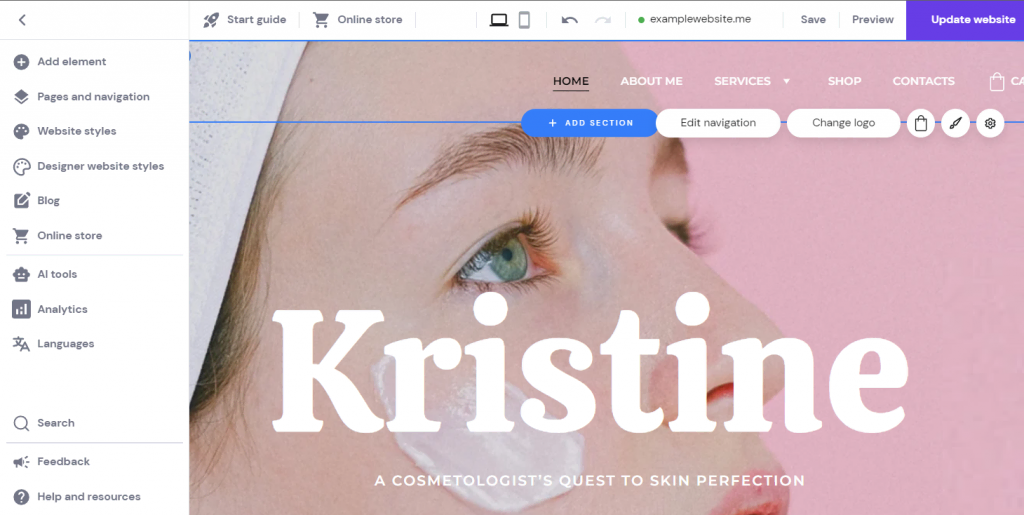
Hostinger Web Builder can be a practical solution for those who want to build an SEO-friendly website without needing in-depth technical expertise. The platform provides a variety of SEO-optimized templates, ensuring a clean HTML structure, optimal loading speed, and responsive design that supports user experience on various devices. In addition, built-in features such as meta title, meta description, and integration with Google Analytics make optimising your website’s performance on search engines easy.
By utilizing Hostinger Web Builder, you can focus more on creating quality content without the hassle of manually managing the technical aspects of SEO. Features like automatic sitemaps and SEO-friendly URL settings help Google index your website faster. Plus, stable server performance and fast loading times will improve your ranking on search engines, making it easier for your website to be found by your target audience.
2. Use URL structure appropriate for multilingual SEO

Choosing the right URL structure for your multilingual site can significantly impact your SEO efforts. There are several ways to structure URLs, including subdirectories (yourwebsite.com/en/), subdomains (en.yourwebsite.com), and country-specific domains (yourwebsite.co.uk). The best choice depends on your goals, but subdirectories are often the most cost-effective and easiest to manage. Search engines understand subdirectories well and consider them part of your main site, which can help concentrate your SEO efforts.
For instance, if you’re targeting a global audience, you might have a structure like yourwebsite.com/en/ for English, yourwebsite.com/fr/ for French, and so on. This makes it easier for users to navigate and for search engines to understand the relationships between different language versions. Each URL should be clearly labelled for the corresponding language, making it user-friendly and SEO-friendly.
3. Apply Hreflang tags to avoid content duplication
Hreflang tags are an important tool for international SEO, as they help search engines understand the intended audience of each page based on language and region. When used correctly, hreflang tags prevent content duplication by signalling to Google which page version should be shown to users in a specific location or language. For example, a page about a “multilingual website” may have an English version for the US and a Spanish version for Mexico. Hreflang tags help ensure that search engines serve users the correct version of the page.
Properly applying hreflang tags involves inserting them into the HTML of each page, telling search engines exactly which language and region each page is intended for. Without these tags, Google may mistakenly think you have duplicate content across different languages, harming your rankings.
For example, for a page with both English and Spanish versions, your tags might look like this:
English version
<link rel="alternate" href="https://www.yourwebsite.com/en/digital-marketing" hreflang="en">
Spanish version
<link rel="alternate" href="https://www.yourwebsite.com/es/sitio-web-multilingüe" hreflang="es">
4. Use SEO-friendly multilingual plugins

Multilingual plugins are powerful tools that simplify creating and managing multilingual websites on WordPress. These plugins enable you to easily translate content, manage SEO metadata, and build language-specific pages. Additionally, translation plugins can manage language-based redirects, making it easy to offer a seamless experience for visitors in their native language. By using a plugin that supports both content translation and SEO optimization, you can ensure that your site performs well globally.
When choosing a multilingual plugin, it’s important to select one that prioritizes SEO optimization to prevent issues and improve visibility. Not all plugins handle SEO elements the same way, and some may lack features essential for maintaining SEO best practices. Here are some key features to look for in an SEO-friendly multilingual plugin.
- Automatic hreflang tag generation: ensures that search engines can correctly index and serve the right language version to users in different locations.
- SEO metadata management: Allows you to manage title tags, meta descriptions, and keywords for each language version of your page, optimizing each for search engines.
- Support for localized content: This feature enables you to tailor content for specific regions, taking into account local customs, currency, or dialects, which helps improve user engagement and search rankings.
- Flexible language switching options: This feature makes it easy for users to switch between languages, improving user experience and reducing bounce rates.
- Content translation for both front-end and back-end: Ensures the translation of visible and administrative content (such as categories, tags, and widgets).
Choosing a multilingual plugin with these features ensures your site is well-optimized for SEO and user experience, ultimately helping you reach a wider audience.
5. Optimize images and media for multilingual versions

Images and media are critical in user experience and SEO, especially on multilingual websites. Optimizing your media for both speed and relevance is important for each language version. Certain images might be more relevant or appealing to a specific audience, and using localized media can enhance the overall user experience. For example, using images that reflect local culture, values, or landmarks can help build a stronger connection with your audience.
Optimizing image alt text for each language version is crucial for SEO and accessibility. This helps search engines better understand the image content and can boost your rankings in image search results. Furthermore, using relevant keywords in your image alt text improves SEO for each language version of your site.
Here are a few tips on how to compress and optimize your images for multilingual SEO:
- Choose the right file format: Use the most suitable format, such as JPEG for photos or PNG for transparent images. WebP is another modern format that provides high-quality images at smaller file sizes, ideal for faster load times.
- Compress images: Use tools like Smush or ShortPixel to compress your images without losing quality. This reduces the file size and accelerates your page load time, which can improve SEO rankings and user experience.
- Resize images appropriately: Avoid using unnecessarily large images. Resize images to the dimensions required by your design. For example, if the image is only displayed at 800x600px on the webpage, don’t upload a 3000x2000px image.
- Use lazy loading: Implement lazy loading for images so they only load when they enter the viewport. This helps reduce initial page load time and improves the website’s overall performance.
- Use image CDN: Leverage a Content Delivery Network (CDN) to serve your images from servers closer to the user’s location. This ensures faster image load times, particularly for multilingual websites serving global audiences.
6. Optimize meta tags and content for each language

Each language version of your website should have tailored meta tags, including titles and descriptions, to target specific search queries. Meta tags are important because they provide search engines and users with concise information about the content of each page. For multilingual sites, it’s essential to adjust these tags for the target language, not just translate them literally. This way, the meta description is relevant and resonates with the audience, improving click-through rates (CTR) and search rankings.
For example, if your English meta description reads “best digital marketing tools,” the French version could say “meilleurs outils de marketing digital.” This small adjustment helps ensure that each language version is optimized for local search behavior and user preferences. Tools like Yoast SEO or Rank Math allow you to easily manage meta tags for different languages and ensure they align with the content’s intent.
7. Use Hostinger CDN to accelerate global access

A Content Delivery Network (CDN) from Hostinger is a great way to speed up your website for visitors from different regions—a CDN stores copies of your site on multiple servers worldwide. When someone accesses your site, they are directed to the server that is closest to them, reducing load times and improving performance. For multilingual websites, a CDN ensures that all language versions of your site load quickly, no matter where your users are located.
CDNs are especially important for websites with heavy international traffic, as they help maintain fast speeds and an optimal user experience across different languages. Hostinger’s CDN is integrated into its hosting packages, making it simple to enable and improve performance without needing additional configurations. Faster loading times enhance user experience and positively impact your site’s SEO rankings.
8. Ensure the XML sitemap contains all language versions

An XML sitemap is a tool that helps search engines crawl and index your website’s pages more efficiently. Your XML sitemap must include all language versions of your pages for multilingual sites. Without this, search engines might miss important content, affecting your rankings in different languages or regions. By using an SEO plugin like Yoast SEO or Rank Math, you can generate an XML sitemap that includes all versions of your pages, ensuring that search engines index each language properly.
Here is example of multilingual XML sitemap
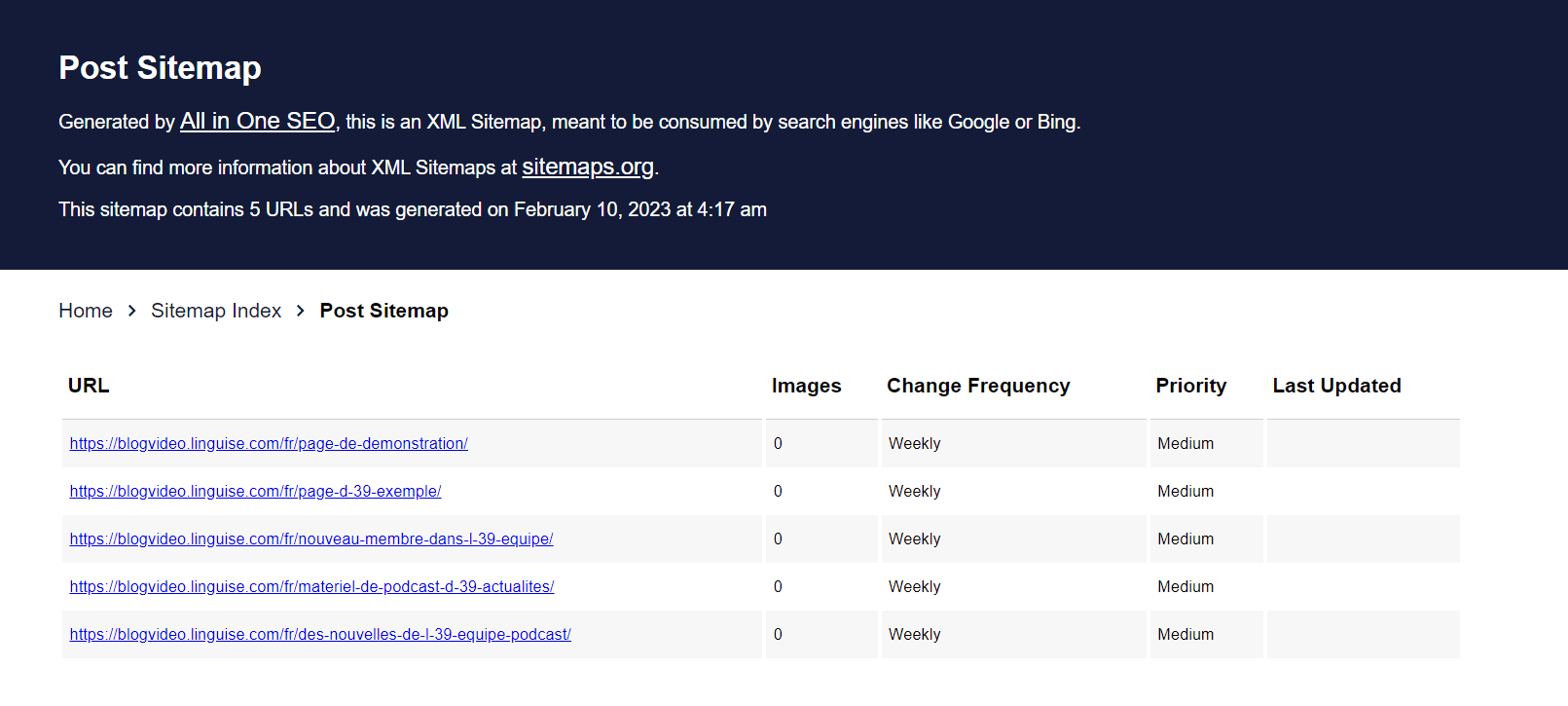
For example, your sitemap might look something like this:
<url><loc>https://www.yourwebsite.com/en/</loc><xhtml:link rel="alternate" hreflang="en-us" href="https://www.yourwebsite.com/en/"/><xhtml:link rel="alternate" hreflang="es-mx" href="https://www.yourwebsite.com/es/"/></url>
This structure tells search engines about the different language versions, ensuring they get indexed properly.
9. Enable caching for multilingual pages with Hostinger’s LiteSpeed Cache
Caching is an effective way to boost your website’s performance, especially for multilingual pages that are often resource-intensive. You’ll want to configure caching properly for multilingual websites to ensure each language version is cached separately. This prevents issues where visitors might see the wrong language version of a page. Enabling caching for multilingual pages helps reduce the load on your server and speeds up content delivery to users. Testing your site’s caching settings is important to ensure that language-specific content is properly served to the right users.
Hostinger’s caching tools are simple and offer a significant performance boost. Additionally, Hostinger uses LiteSpeed servers, so it’s highly recommended that the LiteSpeed Cache plugin for WordPress be used, which has excellent reviews. This plugin is faster than other caching plugins (including WP Rocket) because it utilizes server-level caching and offers extensive features to handle crucial website data.
10. Track SEO performance with Google Search Console
Google Search Console is an invaluable tool for monitoring the performance of your website in search results. For multilingual sites, it’s especially helpful in tracking the performance of each language version. With Search Console, you can identify indexing issues, see how your different language versions are ranking, and track any errors that may arise. You can also monitor the effectiveness of hreflang tags and ensure that Google is showing the correct version of your pages to the right audience.
Using Google Search Console, you can make data-driven decisions to improve your multilingual SEO strategy. It lets you see exactly where to optimize, whether fixing errors, improving content, or ensuring your site is indexed correctly across all languages.
11. Use Hostinger's free SSL for security

Hostinger provides free SSL certificates with all hosting plans, which helps ensure that data transferred between your site and visitors is encrypted. This is especially important for multilingual websites dealing with sensitive user information, such as forms, e-commerce transactions, or personal details.
In addition to security, SSL is a ranking factor for Google. Websites with SSL certificates are more likely to rank higher in search results, giving your multilingual site a competitive edge. Hostinger’s free SSL enhances security and improves user trust and SEO performance.
Linguise: an automatic multilingual translation that integrates with Hostinger
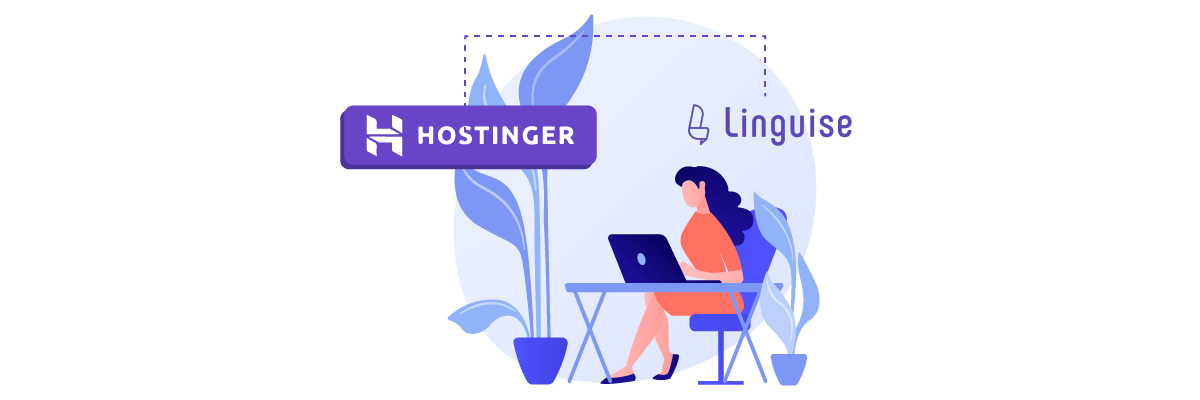
If you’re looking for a multilingual plugin for your Hostinger website, Linguise automatic translation could be the solution. Linguise is a powerful automatic multilingual translation plugin that integrates with the Hostinger web builder, making it ideal for optimizing your multilingual website. It not only offers a smooth translation experience but also supports multilingual SEO to help you increase your visibility on search engines globally.
Integrating with Hostinger, Linguise allows you to easily manage your website’s language versions while ensuring each page is optimized for SEO. It takes care of important SEO aspects like hreflang tags and translated meta descriptions, saving you time and effort while boosting your site’s rankings.
Key features of Linguise:
- Automatic translation: Linguise offers automatic translation for your content, making it easier and faster to create multilingual websites.
- Seamless integration with Hostinger: It integrates effortlessly with Hostinger-hosted websites, ensuring smooth operation and compatibility.
- Multilingual SEO support: Linguise supports multilingual SEO by generating hreflang tags, localized meta descriptions, and URLs in multiple languages to help improve your site’s search engine rankings.
- Live editor translation: You can fine-tune translations for accuracy and context, ensuring the content resonates with each specific audience.
By using Linguise with your Hostinger-hosted website, you can easily extend your site’s reach and optimize it for global SEO without compromising performance or user experience.
Conclusion
Optimizing a website hosted on Hostinger for multilingual SEO is important to reach a global audience effectively. With the right strategies, such as using appropriate URL structures, implementing hreflang tags, and optimizing meta tags and content for each language, you can increase your site’s visibility in various international markets. In addition, using Hostinger CDN and media optimization ensures a better user experience with faster page load times, contributing to better search rankings.
Managing a multilingual site and ensuring every page is well-optimized for SEO can be easy with an integrated plugin like Linguise. With accurate translation automation features and SEO settings that support multiple languages, Linguise helps increase your site’s global reach without sacrificing performance. Try Linguise today and take your site international with ease!


